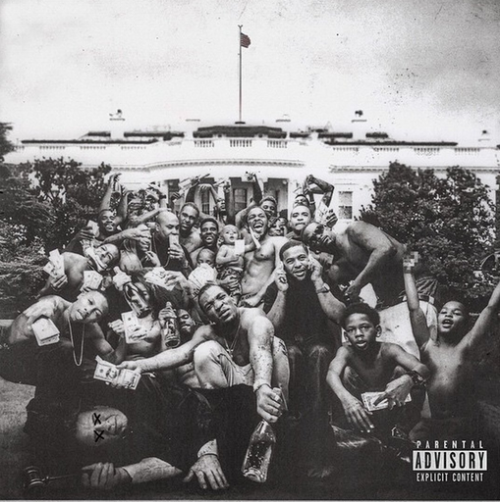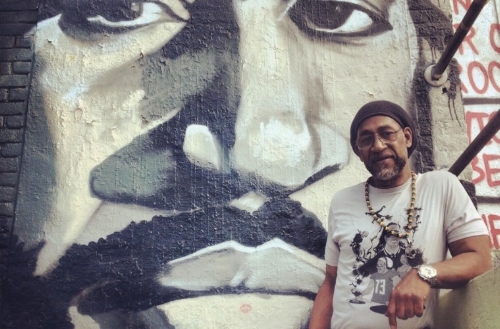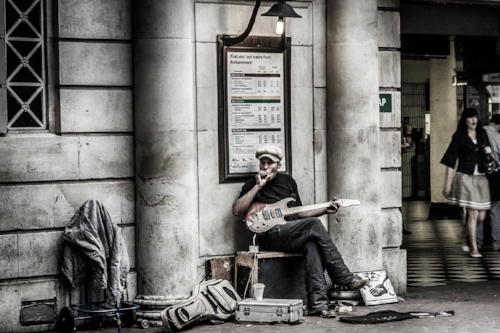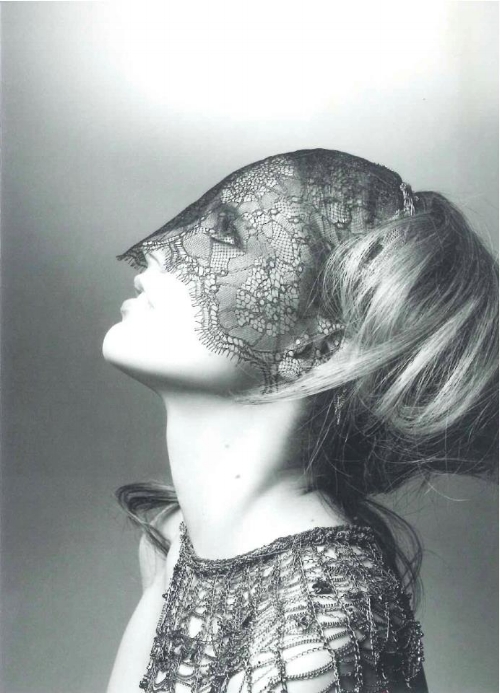INTERVIEW:
Cold Reading
________
IF you’ve heard one Swiss Emo/Indie band…
you’ve probably been listening to Cold Reading. There might be another one but, given they have unique real estate, I was interested finding more about the boys. Books & Comfort is the latest song from the powerhouse collective – taken from their forthcoming E.P., Sojourner. They guide me through its creation and inspiration; talk about some of the music (and books) that inspire them and how the remainder of 2017 is patching out.
I talk to the chaps about their European success and, consider they have played in the U.K., there is any intention of returning anytime soon. They provide background on their latest single and the emotions and dynamics that feed into their unique blend.
________
Hi, guys. How are you? How has your week been?
Marc: Hey. We’re all fine, I guess.
Very exciting to release the first new music in two years, of course.
For those new to your work; can you introduce yourself, please?
We are a four-piece rock band from Lucerne, Switzerland called Cold Reading.
Our sound can be placed somewhere between Emo, Indie and Alternative Rock - and we formed in 2014.
We've got Mike on Vocals/Keys, Chris on Guitar/Vocals; Arthur on Bass/Vocals and Marc on Drums.
Can you tell me how you got together in the first place and where the name ‘Cold Reading’ came from?
Chris: I’ve known Mike for years now and we’ve played together before. Arthur and I met later and played together in a band called Face the Front. Then, we met Marc at a show and formed Cold Reading - after the disbandment Face the Front.
After getting Mike on board; our current line-up was complete.
Books & Comfort is your new single. What can you tell us about the song and its meaning?
Mike: Books & Comfort was, actually, the last song we wrote for the new E.P.
We certainly meant it to be a rather fast-paced, to-the-point song and it was soon decided that it would be a fitting first taste/single. With regards its content; it’s a play of thoughts on the desire to slip into another body. There are times when you think all your problems can be solved by running away.
In the end, however, one has to learn how to deal with one’s weaknesses and try to change them into something positive.
I get a sense of battling against struggle and finding a positive outlook on life (from the song). Was there a particular occasion or moment that inspired the song? Is it a track relevant and meaningful to all of you?
Yeah, you got that right.
As with many of our songs; the lyrics are simultaneously somewhat autobiographical and abstract. There was not a specific occasion that is being dealt with in the song - it’s more a processing of thoughts that I’ve had time and time again – and (about) how I’m striving to turn them into something more optimistic.
Arthur: While Mike is the lyricist - and certainly has the deepest connection to them - we certainly ‘feel’ them as well. As we are a very democratic and collaborative band, every song is a new baby for everyone – and, I think, Books & Comfort is absolutely a ‘relevant’ song in our limited discography.
Marc: Yeah. It’s probably my favourite song of ours (until now, at least).
Sojourner is your E.P. – coming out on 22nd September. Can you reveal any other songs that will appear on it?
Well. There will be four songs on the album.
One of them is the title track - of which you can find an acoustic version online already.
I rarely get to interview Swiss bands. What is the music scene like there and how easy it is getting your music out to the people of Switzerland?
Switzerland is a great country to play in regard to how well you are treated as a band.
It is so small, however, that there’s no point of actually touring only in Switzerland - at least not if you are a small band playing a relatively marginalized style of music (like we are). The scene is tightly-knit, though, so you can count on a loyal fan base and cool opportunities popping up - like supporting some bigger bands.
PHOTO CREDIT: Luke Bateman Photo
It seems Books & Comfort, already, has garnered attention from German, British and American sources. Is it quite surprising hearing your music being taken to heart in these nations?
It’s very flattering that the likes of New Noise Magazine, Mosh (Hit the Floor), Intro Magazine (and more) were kind enough to premiere or write features about our music.
We don’t take it for granted and are just excited about everyone who takes pleasure in listening to our tunes.
Your music, I find, has progressed and evolved over the last couple of years. How would you say it has changed?
We just like to keep challenging ourselves...
We do have a core sound and style that we want to keep playing. For example, we won’t abandon our beloved quiet-loud dynamics any time soon, I guess. However, we always try to implement out-of-the-box approaches, different synth and guitar sounds; varying song structures and the like.
Or, as is the case with Books & Comfort, we challenge ourselves to streamline a song - which is often even harder to do for us.
PHOTO CREDIT: Luke Bateman Photo
Who are the artists you all grew up listening to?
Chregi: Marilyn Manson used to be my favourite artist as an early-teen. Soon all the Emo bands - like Taking Back Sunday and Brand New - that were huge at the time took over.
Marc: I listened to terrible American radio Rock for far too long. I think La Dispute and Alexisonfire were my gateway bands to the realms of Post-Hardcore; '90s Emo and all that stuff.
Mike: When I was younger; I started listening to Punk-Rock. I was totally into NOFX, Propagandhi and all these melodic Punk bands. What I loved most about Punk-Rock was that everybody could do it. You didn’t have to be a pro. to do what you want.
Yeah, I loved this D.I.Y. ethic and it’s still part of me.
Arthur: Since my parents kept spinning The Clash and Buzzcocks records over and over again; I ended up being a big fan of Punk music - even before my teenage years.
I, then, soon got into all the classic Pop punk stuff like Blink-182, New Found Glory etc. which, somehow, led me to discover smaller Pop/Punk/Emo/Indie bands.
Have you any tour dates coming up at all? Might we see you in the U.K. at some point?
Marc: Apart from playing a few shows in Switzerland, we are heading out on a ten-day tour in October. Unfortunately, it won’t take us to the U.K. but we’re excited to be hitting France, Germany and, possibly, Austria.
We enjoyed our U.K. trip last summer and definitely plan to come back next year. It’s just difficult to handle with our jobs and university (and that kind of stuff).
Are there any new artists you recommend we check out?
I’m currently digging Backwards Charm: an Austrian band we became friends with.
The new Sinai Vessel record is great (even though they aren’t really new: they’re gaining some steam this year).
IN THIS PHOTO: Backwards Charm
Mike: I really dig Portugal. The Man’s latest album, called Woodstock. It’s my favourite of this summer.
Check it out, it’s great.
Arthur: The Tiny Engine-signed band Wild Pink released an album which definitely is, for me, an A.o.T.Y. (album of the year) contender.
There’s also a German band called Leoniden - who released a hell of a debut album this year.
IN THIS PHOTO: Leoniden
If you had to select the one album that means the most to each of you; which would they be and why?
Chregi: Brand New – Deja Entendu
It’s an absolute classic of the genre and easily my most-listened-to album. It’s still so great to jam it in the van.
Marc: It’s gotta be Death Cab for Cutie’s Transatlanticism
Not only is it an absolute masterpiece of melancholic Indie-Pop-Rock; it (just) holds a special place in my heart and takes me right back to the time and place when I listened to it religiously.
Mike: That’s a tough question...I mean, there are so many good records out there. But, if I had to pick one, I’d choose The Devil and God & are Raging Inside Me by Brand New
I love the whole idea behind the record. The profound lyrics still guide me through life.
Arthur: I’ll have to say American Football’s L.P. 1 (eponymous album)
It somehow made its way to my ears during a fitting period in my life leaving a big emotional connection toward its songs.
Also, given your literature-referencing song and band name; if each of you could only rescue one book from a burning building – bear with me on this one! – which would they be?
Chregi: City of Thieves by David Benioff
Marc: Jonathan Franzen’s The Corrections
Mike: The Dark Tower series by Stephen King
I read these seven books the fourth time in a row now - and every time I still discover new things.
For me, it’s just a masterpiece because it’s such a great mixture of genres and one of the greatest stories ever written.
What advice would you give to any new artists starting out right now?
Marc: I don’t think we are really in a position to answer this question satisfyingly.
It’s a game with so many factors in it and only one-in-a-thousand will make it big - so you might as well just do what you want to; write the songs that you want to. Stay true to yourself and have fun. On a more practical note, it certainly helps if you show up at (local) shows - or even book and promote shows on your own.
You will make new friends, discover great bands and make connections that can help your own band as well…so it’s a win-win-win.
Mike: Make music because you love it - and don’t think too much about getting famous. Write songs and have fun.
Simply stay true to yourself.
Arthur: Marc already put in words what I’d have said perfectly….
Finally, and for being good sports; you can each name a song and I’ll play it here (not one of yours as I’ll do that).
Chregi: Manchester Orchestra – The Alien
Marc: Slowdive – Don’t Know Why
Mike: Portugal. The Man – Live in the Moment
Arthur: Leoniden – Nevermind
________
Follow Cold Reading
Official:
Facebook:
https://www.facebook.com/coldreadingband/
Twitter:
https://twitter.com/coldreadingband
Instagram:
https://www.instagram.com/coldreadingband/
Spotify:
https://open.spotify.com/artist/2hF1SQUkMYdZ35YogbA0iA
BandCamp:
https://coldreading1.bandcamp.com/
YouTube:





















































































































































































































































































